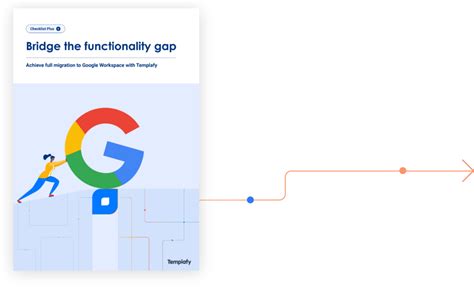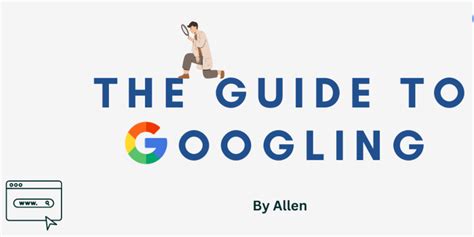Navigating legal challenges can be daunting, especially without the right resources and support. Legal aid offers a lifeline for those who may not have the financial means to access private legal services, ensuring that everyone has the opportunity to protect their rights and interests. In this guide, we will explore the importance of legal aid, how to qualify, and where to find these essential services. We’ll also cover the types of legal issues typically addressed by legal aid, how to apply, and what you can expect. Additionally, we’ll provide alternative legal resources and share inspiring success stories to help you navigate your legal challenges with confidence.
bzcat.xyz will explore this topic comprehensively.
1. Why Legal Aid is Important
Legal aid is a crucial service that ensures access to justice for individuals who may not have the financial means to hire private legal representation. It plays a vital role in leveling the playing field, particularly for vulnerable populations who might otherwise be excluded from the legal system. Without legal aid, many people would be unable to defend their rights, navigate complex legal issues, or seek redress in court, leading to unjust outcomes and a lack of accountability.
Legal aid is important not just for individuals but for society as a whole. It helps maintain the integrity of the legal system by ensuring that all voices are heard and that justice is not solely accessible to those with financial resources. It also promotes social stability by providing a mechanism for resolving disputes fairly and equitably. Additionally, legal aid services often extend beyond court representation, offering crucial advice and support that empowers individuals to understand their rights and obligations. In essence, legal aid is a cornerstone of a fair and just society, ensuring that everyone has the opportunity to seek and obtain justice, regardless of their financial situation.

2. How to Qualify for Legal Aid
Qualifying for legal aid typically depends on a combination of factors, primarily related to your financial situation and the nature of your legal issue. Legal aid is designed to assist those who cannot afford private legal services, so income is a key determinant. Most legal aid programs have income thresholds, which vary depending on the region and the size of your household. These thresholds are often based on federal poverty guidelines, with many programs considering applicants whose income is at or below 125% of these guidelines, though some may accept higher incomes in certain circumstances.
In addition to income, your assets and overall financial resources will be assessed. This includes savings, property, and other assets that could be used to pay for legal services. However, certain assets, like your primary residence or basic household goods, may be exempt from consideration.
The type of legal issue you’re facing is also a critical factor. Legal aid is often available for cases involving fundamental needs, such as housing, family law matters like custody or domestic violence, public benefits, and other civil issues. Criminal cases are typically not covered, except in situations where the defendant’s right to an attorney is constitutionally guaranteed.

3. Where to Find Legal Aid Services
Finding legal aid services can be straightforward if you know where to look. Many communities have legal aid organizations that offer free or low-cost assistance. These organizations are often non-profits dedicated to helping low-income individuals navigate the legal system. To locate these services, you can start by searching online for legal aid offices in your area. National and state-level directories often list local organizations that provide legal aid.
Courthouses and community centers can also be valuable resources. Many courthouses have information desks or self-help centers that provide details on local legal aid services. Additionally, public libraries often have resources or partnerships with legal aid organizations to help connect you with the right assistance.
Another option is to contact local bar associations, which frequently have referral programs that direct individuals to legal aid services. Some law schools also offer legal clinics where law students, under supervision, provide legal assistance to those in need. These various resources ensure that help is accessible to those who qualify.

4. Types of Legal Issues Covered by Legal Aid
Legal aid services typically cover a broad range of civil legal issues, focusing on cases that significantly impact an individual’s well-being and livelihood. One of the primary areas covered by legal aid is family law. This includes cases involving divorce, child custody, child support, and domestic violence. Legal aid ensures that individuals in these sensitive situations have the representation they need to protect their rights and the best interests of their children.
Housing-related issues are another major focus of legal aid. This includes eviction defense, disputes with landlords, foreclosure prevention, and assistance with housing discrimination cases. Ensuring access to stable housing is a critical function of legal aid, as it directly affects a person’s quality of life and security.
Legal aid also covers issues related to public benefits, such as Social Security, disability benefits, and unemployment compensation. These cases often involve complex bureaucratic processes where legal expertise is essential to secure the benefits to which individuals are entitled.
Additionally, legal aid can assist with consumer issues, including debt collection defense, bankruptcy, and protection against predatory lending practices. Employment law, including wage disputes and workplace discrimination, is also commonly covered. These services collectively ensure that vulnerable populations have access to justice in crucial areas of their lives.
5. How to Apply for Legal Aid
Applying for legal aid typically involves a few straightforward steps, but it’s important to be prepared and thorough. First, contact your local legal aid office or visit their website to determine the specific application process, as procedures can vary by location. Many legal aid organizations offer an initial screening online, over the phone, or in person to determine if you meet the eligibility criteria based on income, assets, and the type of legal issue.
During the application process, you’ll need to provide detailed information about your financial situation, including income, expenses, and any assets you own. Be ready to present documents such as pay stubs, bank statements, and proof of any public benefits you receive.
Once your financial eligibility is established, you’ll typically meet with a legal aid representative to discuss your case in detail. This may involve providing further documentation related to your legal issue. If approved, you’ll be assigned an attorney or legal advisor who will guide you through the legal process. It’s crucial to apply as early as possible, as legal aid resources are often in high demand.
6. What to Expect from Legal Aid Services
When you receive legal aid services, you can expect professional, compassionate assistance tailored to your specific legal needs. After being approved for legal aid, you will be assigned an attorney or legal advisor who will guide you through the legal process. They will provide you with clear explanations of your rights, options, and the potential outcomes of your case.
Your legal aid attorney will represent you in court, if necessary, and handle communications with the opposing party. They will also assist with the preparation of legal documents, help you navigate complex legal procedures, and offer advice on the best course of action.
It’s important to note that while legal aid attorneys are dedicated to providing high-quality service, the scope of their assistance may be limited by the resources available. They will prioritize cases based on the severity and urgency of the legal issue. Overall, legal aid services strive to ensure that you have access to justice and fair representation, regardless of your financial situation.
7. Alternative Legal Resources
If legal aid services are not available or do not fully meet your needs, several alternative legal resources can provide assistance. Pro bono programs, offered by many law firms and legal organizations, provide free legal services to those in need. These programs connect individuals with volunteer attorneys who offer their expertise without charge.
Law school clinics are another valuable resource. Many law schools operate clinics where law students, supervised by experienced faculty, provide legal assistance on various issues. These clinics can offer practical help while giving students valuable experience.
Public legal information hotlines and online resources can also be useful. Many organizations provide free legal advice over the phone or through online platforms, offering guidance on how to handle specific legal problems.
Additionally, self-help cente
8. Success Stories and Case Studies
Success stories and case studies highlight the impactful role of legal aid in transforming lives and securing justice. For instance, in a notable case, a single mother facing eviction due to unpaid rent received legal aid representation. With the attorney’s help, she was able to negotiate a manageable payment plan with her landlord and avoid homelessness, ensuring stability for her children.
Another success story involves an elderly couple who sought legal aid for a complex estate planning issue. The legal aid attorney helped them draft a will and establish a trust, safeguarding their assets and ensuring their wishes were honored. This case not only protected their financial legacy but also provided peace of mind.
In yet another case, a victim of domestic violence received crucial support from a legal aid attorney. The attorney helped secure a protective order and navigate the legal process to obtain custody of her children. This intervention provided safety and a new beginning for her family.
These cases demonstrate how legal aid can make a significant difference in individuals’ lives, addressing urgent needs and ensuring that everyone, regardless of their financial situation, has access to justice and the protection of their rights.
Legal aid is vital for ensuring justice and protecting rights for those in financial need. By understanding how to qualify, where to find services, and what to expect, you can effectively navigate legal challenges. Explore alternative resources and learn from success stories to empower yourself and others in the pursuit of justice.
bzcat.xyz
